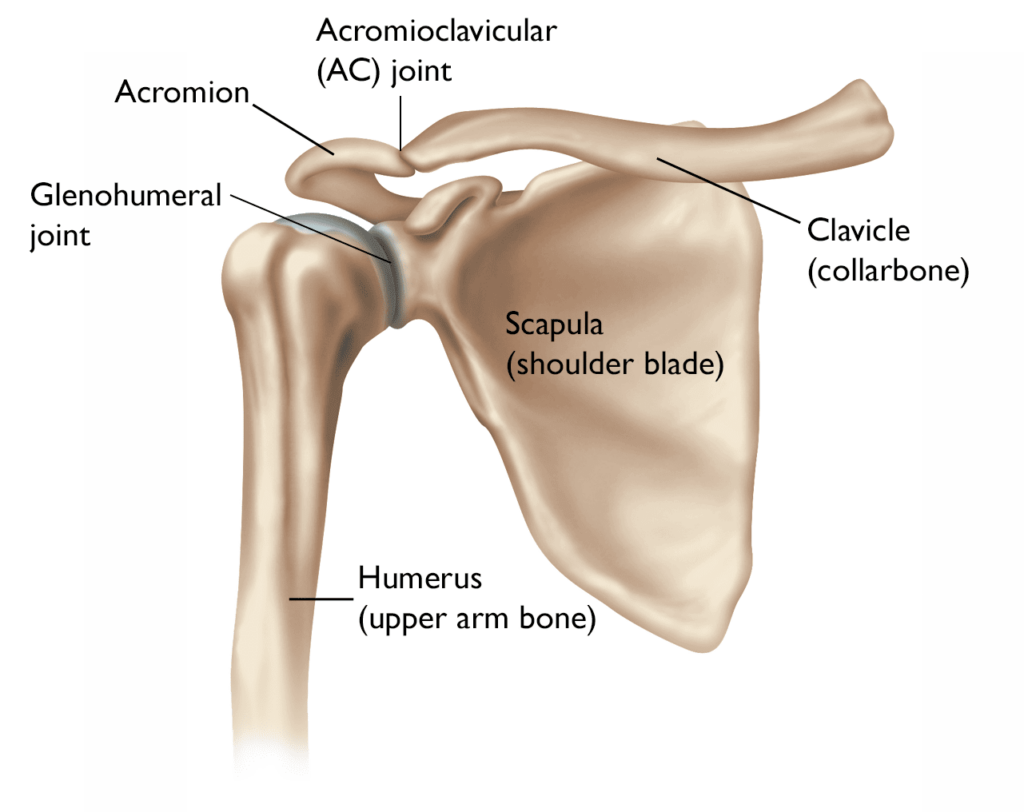Shoulder arthritis can be a debilitating condition that significantly affects daily activities and overall quality of life. It occurs when the cartilage in the shoulder joint wears down, leading to pain, stiffness, and decreased mobility. Understanding the different types of shoulder arthritis and available treatment options can help patients manage their symptoms and improve function.

Types of Shoulder Arthritis:
- Osteoarthritis: The most common type, often referred to as “wear-and-tear” arthritis, occurs when the cartilage cushioning the bones in the joint deteriorates over time.
- Rheumatoid Arthritis: An autoimmune condition where the body’s immune system attacks the joint lining, causing inflammation and damage.
- Post-Traumatic Arthritis: Develops after an injury to the shoulder, such as a fracture or dislocation, leading to accelerated joint degeneration.
Common Symptoms:
- Persistent pain in the shoulder, especially during movement or at rest
- Stiffness and limited range of motion
- Swelling or tenderness around the joint
- A clicking or grinding sensation during shoulder movement
Diagnosis:
Diagnosis involves a detailed medical history, physical examination, and imaging tests such as X-rays or MRI to assess the extent of joint damage. Your orthopedic surgeon may also perform a joint aspiration to analyze the fluid for signs of inflammation or infection.
Treatment Options:
The goal of treatment is to alleviate pain, maintain mobility, and improve the overall function of the shoulder. Options include:
- Non-Surgical Treatments:
- Medications: NSAIDs or corticosteroids can help reduce pain and inflammation.
- Physical Therapy: Targeted exercises can strengthen the muscles around the joint, improve flexibility, and reduce stiffness.
- Lifestyle Modifications: Adjusting activities to avoid repetitive shoulder movements and using assistive devices can help manage symptoms.
- Injections: Corticosteroid or hyaluronic acid injections may provide temporary relief.
- Surgical Treatments:
- Arthroscopy: Minimally invasive procedure to remove loose cartilage or bone spurs.
- Shoulder Replacement Surgery: In severe cases, joint replacement surgery (either total or partial) may be necessary to restore function and alleviate pain.
Recovery and Long-term Management
Recovery depends on the severity of the arthritis and the treatment approach. Adherence to a rehabilitation program and lifestyle modifications can help manage symptoms and improve quality of life. Regular follow-up with your orthopedic surgeon is essential to monitor the condition and adjust treatment as needed.
If shoulder arthritis is affecting your daily life, consult with an orthopedic specialist to discuss the best treatment plan tailored to your needs. Early intervention and appropriate management can make a significant difference in maintaining shoulder health and function.
For individuals dealing with shoulder arthritis, Dr. Oladapo M. Babatunde, a renowned shoulder surgeon in New Jersey, provides comprehensive care designed to meet each patient’s unique needs. His personalized treatment plans incorporate both non-surgical and surgical options, aiming to enhance shoulder mobility and alleviate pain effectively. With Dr. Babatunde’s expertise, patients can navigate their recovery journey with confidence, ultimately working towards reclaiming their active lifestyle. If you’re experiencing symptoms of shoulder arthritis, consulting with Dr. Babatunde could be your first step toward restoring optimal shoulder function and health.
Have Questions?
Please call our East Rutherford, New Jersey Office at 201-500-9450 or West Orange, New Jersey Office at 973-447-3525
"*" indicates required fields


